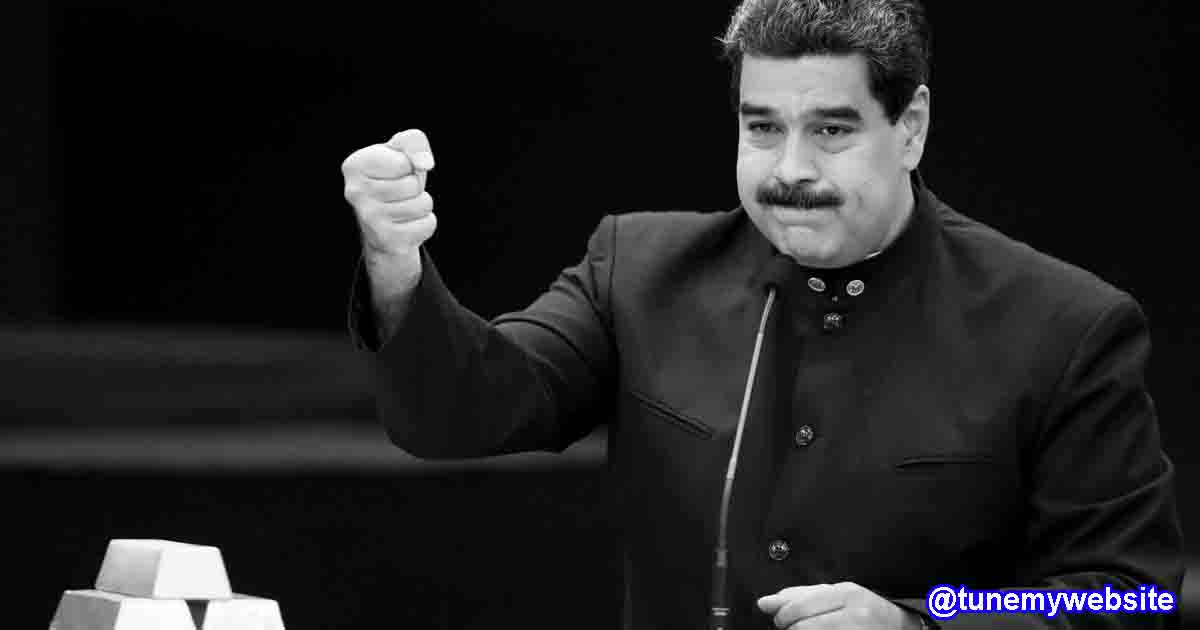Venezuela legal battle return Bank England gold details how the UK's High Court is set to choose this week on the destiny of Venezuela's gold held by the Bank of England, with the Venezuelan government and the restriction battling for the abroad bullion saves.
Venezuela's national bank needs the nation's gold back to fight the coronavirus flare-up, by offering it to purchase medication and gear, as the quantity of contaminations in the nation rises. A month ago, it recorded a case requesting that London discharge more than $1 billion in gold to address the crisis circumstance.
In spite of affirmations from Caracas that the assets from the gold deal would be straightforwardly moved to the United Nations Development Program (UNDP) to keep it from being utilized for different purposes, the nation's resistance is against the returning of the valuable metal to the Venezuelan government. Legal counselors for the nation's self-declared between time president Juan Guaido are purportedly demanding that he has the privilege to attest Venezuela's case to the gold held in London, as the US and its partners remember him as the country's head.
The conference, which started in London on Monday, is set to most recent four days. At the point when the procedure began, the legal counselor speaking to the Maduro government approached the court to unravel law and legislative issues, including that endorsement of an administration has nothing to do with its conventional acknowledgment.
The Bank of England is the second-biggest gold storeroom on the planet after the New York Federal Reserve; it keeps almost $250 billion-worth of gold possessed by remote governments, including Venezuela. Caracas has made a few ineffective endeavors to repatriate its benefits from the UK, since getting subject to US sanctions.
Venezuela legal battle return Bank England gold

Venezuela legal battle return Bank England gold
Related:
India to force stricter standards and levies on Chinese imports in the midst of fringe column
The Bureau of Indian Standards is to force harder standards on at any rate 370 Chinese items, to guarantee things that can be privately created aren't imported, sources told the Economic Times.
The items will purportedly incorporate synthetic concoctions and pharmaceuticals, elastic and metal things, overwhelming and modern apparatus, paper, steel, glass, compost, furniture, gadgets, and plastic toys.
Neighborhood sources said conversations are additionally continuous to raise import obligation on furniture, just as auto parts and climate control system blowers. The proposition is being assessed by India's Finance Ministry as a component of the administration's push for progressively nearby assembling.
As indicated by similar sources, the Trade Ministry is independently assessing non-duty measures to check Chinese imports, to abstain from falling foul of World Trade Organization rules. Such measures would incorporate more assessments, further item testing and improved quality-accreditation necessities, they said.
The requirement for import replacement has gone to the front in India after disturbances to crude material supplies from China in the wake of the Covid-19 pandemic. Requires the procedure to be sped up have expanded after a destructive outskirt conflict between fighters from the two nations along a contested fringe in the Himalayas this month.
China is India's greatest merchant, with buys, for example, electronic merchandise, modern apparatus and natural synthetic substances adding up to nearly $70 billion of every 2019. Beijing appreciates an exchange overflow of about $50 billion with New Delhi.
More news:
Worldwide exchange faces most noticeably terrible dive on record, yet 'it could have been a lot of more awful' – WTO
The Covid-19 episode is set to drive worldwide exchange somewhere near 18.5 percent in the second quarter of 2020, the World Trade Organization (WTO) has figure. Regardless of being the steepest fall ever, it is over the WTO's most noticeably terrible forecasts.
The exchange body's figures show that worldwide product exchange shed three percent year-on-year in the initial three months of 2020, yet the infection related measures exacerbated the circumstance.
"Introductory assessments for the subsequent quarter, when the infection and related lockdown estimates influenced a huge portion of the worldwide populace, demonstrate a year-on-year drop of around 18.5%," the WTO said in a report discharged on Tuesday.
The WTO's yearly exchange estimate April set out two potential results of the current emergency. As per the skeptical one, exchange could crash by 32 percent, while the best situation would be a 13-percent fall. The association currently says that fast government reactions helped temper the compressions, and the negative situation shows up more uncertain.
"The fall in exchange we are currently observing is generally huge – truth be told, it would be the steepest on record. Be that as it may, there is a significant silver coating here: it could have been a lot of more awful," said Director‑General Roberto Azevedo. "This is truly positive news, yet we can't bear to be smug."
Regardless of governments figuring out how to respond to the current emergency snappier than they did in 2008-2009, the viewpoint for the worldwide economy throughout the following two years is still profoundly unsure, as per the WTO. The vulnerabilities are driven by the chance of a second rush of the coronavirus and related limitations, just as broad response to exchange limitations.
The pace of financial recuperation would additionally influence exchange development, the WTO says. In case of a fast come back to the pre-pandemic direction, worldwide exchange could grow around 20 percent, while an ascent in contaminations may leave it shy of the pre-emergency pattern, with exchange recouping just by five percent.